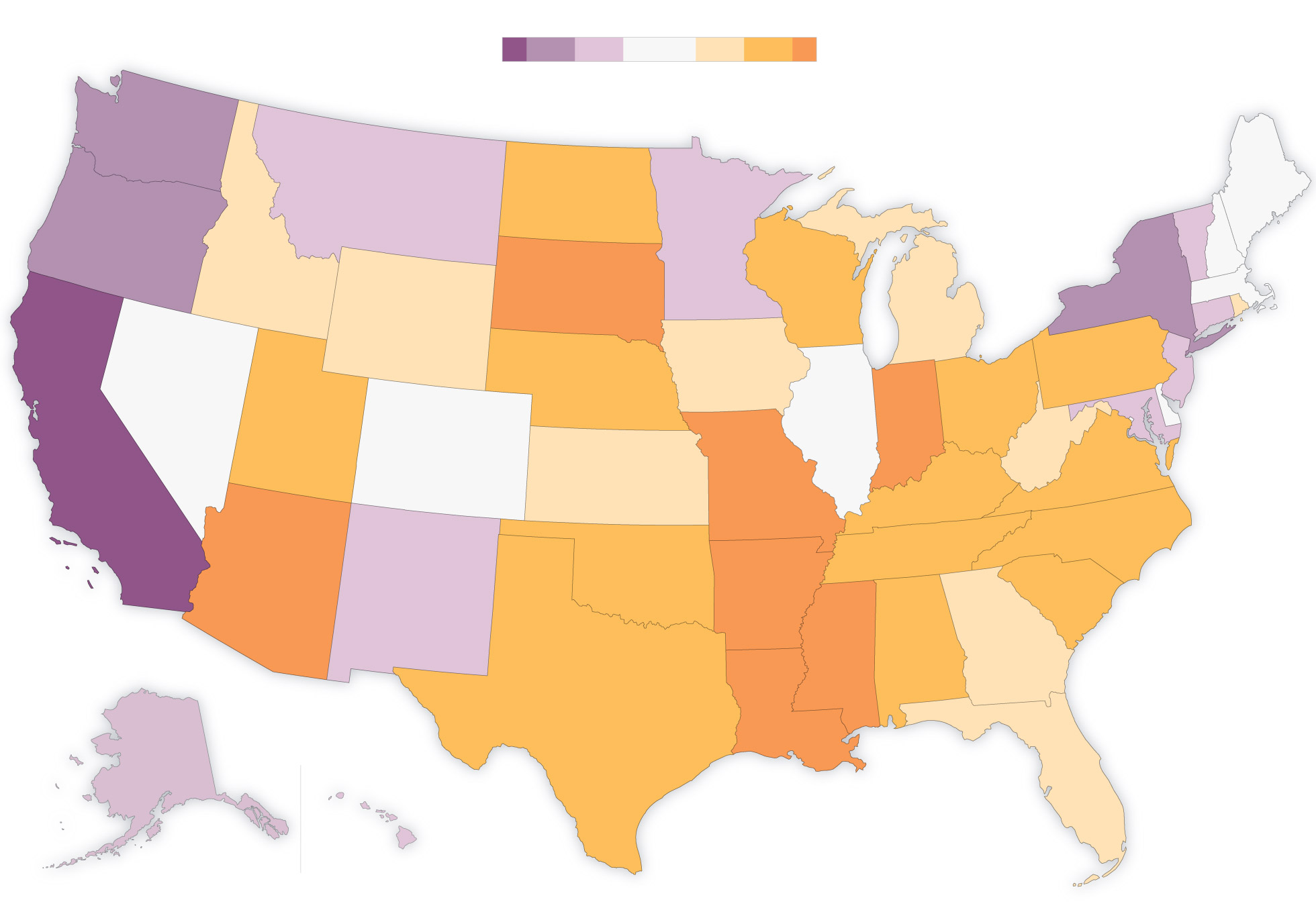Abortion Law by State

Abortion Laws by State
Permissive States
Permissive states are those that have few restrictions on access to abortion. In these states, women are able to access abortion services without facing significant barriers. Some of the most permissive states include California, Colorado, and Vermont. These states allow abortion up to the point of viability, which is typically around 24 weeks gestation. They also allow healthcare providers other than doctors to perform abortions, which makes it easier for women to access care.
California
California is one of the most permissive states when it comes to abortion access. In California, abortion is legal up to the point of viability, which is typically around 24 weeks gestation. After 24 weeks, abortion is only allowed if the woman's life or health is at risk. California also allows healthcare providers other than doctors to perform abortions, which makes it easier for women to access care.
Colorado
Colorado is another permissive state when it comes to abortion access. In Colorado, abortion is legal up to the point of viability, which is typically around 24 weeks gestation. After 24 weeks, abortion is only allowed if the woman's life or health is at risk. Colorado also allows healthcare providers other than doctors to perform abortions, which makes it easier for women to access care.
Vermont
Vermont is a permissive state when it comes to abortion access. In Vermont, abortion is legal up to the point of viability, which is typically around 24 weeks gestation. After 24 weeks, abortion is only allowed if the woman's life or health is at risk. Vermont also allows healthcare providers other than doctors to perform abortions, which makes it easier for women to access care.
Restrictive States
Restrictive states are those that have significant barriers to access to abortion. In these states, women may face waiting periods, mandatory counseling, and other restrictions that make it difficult to access care. Some of the most restrictive states include Alabama, Arkansas, and Missouri. These states have laws that limit access to abortion and make it difficult for women to obtain care.
Alabama
Alabama is one of the most restrictive states when it comes to abortion access. In Alabama, abortion is only legal up to the point of viability, which is typically around 24 weeks gestation. After 24 weeks, abortion is only allowed if the woman's life or health is at risk. Alabama also has a mandatory waiting period of 48 hours before a woman can obtain an abortion, and requires that she receive counseling on alternatives to abortion.
Arkansas
Arkansas is another restrictive state when it comes to abortion access. In Arkansas, abortion is only legal up to the point of viability, which is typically around 24 weeks gestation. After 24 weeks, abortion is only allowed if the woman's life or health is at risk. Arkansas also has a mandatory waiting period of 48 hours before a woman can obtain an abortion, and requires that she receive counseling on alternatives to abortion.
Missouri
Missouri is a restrictive state when it comes to abortion access. In Missouri, abortion is only legal up to the point of viability, which is typically around 24 weeks gestation. After 24 weeks, abortion is only allowed if the woman's life or health is at risk. Missouri also has a mandatory waiting period of 72 hours before a woman can obtain an abortion, and requires that she receive counseling on alternatives to abortion.
Advantages and Disadvantages of Abortion Laws by State
The advantages of permissive abortion laws are that women have greater access to care, which can lead to better health outcomes. When women are able to obtain abortions earlier in their pregnancies, they are less likely to experience complications and may require less medical intervention. Additionally, permissive abortion laws can help to reduce the stigma associated with abortion, which can make it easier for women to obtain care.
The disadvantages of restrictive abortion laws are that they can create significant barriers to access to care. Women who live in restrictive states may have to travel long distances to obtain care, which can be costly and time-consuming. Additionally, restrictive abortion laws can contribute to the stigma associated with abortion, which can make it difficult for women to obtain care and can lead to negative health outcomes.
Conclusion
The abortion laws by state in the United States vary widely. Permissive states have few restrictions on access to care, while restrictive states have significant barriers to access. Understanding the laws in your state is important if you are considering having an abortion or if you are a healthcare provider who provides abortion services. Ultimately, the decision of whether or not to have an abortion should be a personal one, and women should have the ability to make that decision without facing significant barriers.
FAQs
Q: Is abortion legal in all states?
A: No, abortion is not legal in all states. The legality of abortion varies from state to state.
Q: What are the most permissive states when it comes to abortion access?
A: Some of the most permissive states when it comes to abortion access include California, Colorado, and Vermont.
Q: What are the most restrictive states when it comes to abortion access?
A: Some of the most restrictive states when it comes to abortion access include Alabama, Arkansas, and Missouri.
Q: Are there waiting periods for abortion in all states?
A: No, not all states have waiting periods for abortion. However, many states do have waiting periods of varying lengths.
